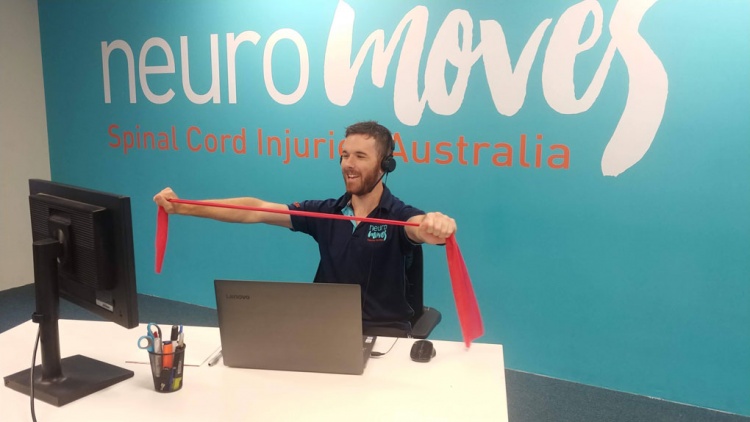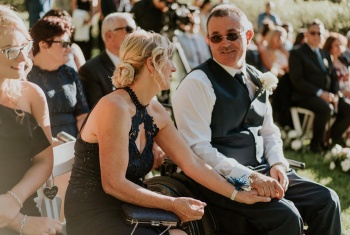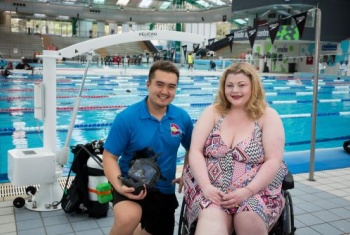An innovative exercise and therapy program for people living with spinal cord injuries is for the first time being delivered to clients in the comfort of their own homes.
One NDIS participant to benefit is Adelaide university student and Australian para table tennis team member Hayley Sands.
Now 20, Hayley was 13 when she suffered a whiplash injury after diving into a pool, resulting in tetraplegia.
Although she has feeling in her whole body she was unable to move her body much until she started with NeuroMoves, which has given her increased upper limb and upper body strength through regular weekly sessions.
With Spinal Injury Awareness Week running from September 7 to 13 this year, Hayley is keen to highlight the benefits of intensive rehab for injuries like hers.
“I was one of the first two people to join the South Australian program when it started at the spinal cord gym in Angle Park when I was 15,” she says. “It’s made a huge difference to my life, improving my seated balance, giving me the strength to transfer more easily from my bed to a chair, from my chair to my car, and to play competitive table tennis!”
Since its inception 12 years ago the NeuroMoves program has made a profound difference to the lives of many Australians, particularly since the rollout of the NDIS which allows participants to access the program using their plan funding.
Until March this year the program had only been available at locations in major cities and a handful of other regional centres. But when the COVID-19 lockdown hit and NeuroMoves had to suspend its face-to-face operations, it brought forward the telehealth platform roll-out virtually overnight.
Diane Lucas, CEO of peak body Spinal Cord Injuries Australia (SCIA) which runs NeuroMoves, explains that “like so many organisations we had to rethink how we provided our services in a very short period of time”.
Using the GPNow telehealth platform developed by Aussie start-up PII Australia, SCIA was able to move the entire NeuroMoves program online in just nine days – with immediate benefit both for existing clients and for new clients who had never previously been able to access the service.
Hayley jumped at the chance to participate when the program moved online, saying “it’s very easy to deteriorate quickly if you don’t maintain your form – it wasn’t possible for me to do regular online classes like my friends”.
“Doing the program online is so easy and has enabled me to continue doing cardio and weights with an exercise physiologist or physio one-on-one in the comfort of my own home,” Hayley says.
“The whole program is covered by NDIS, and not only has the move online helped me keep a routine, it’s given me more time to attend table tennis practice sessions two or three times a week.”
SCIA’s Diane Lucas says overall things have gone exceptionally well.
“We thought we might get 25 per cent uptake of the telehealth NeuroMoves program but it’s actually almost been 50 per cent,” she says. “Our therapists love the GPNow platform and our clients are of course very pleased to be able to continue their sessions at home.”



